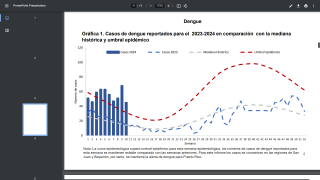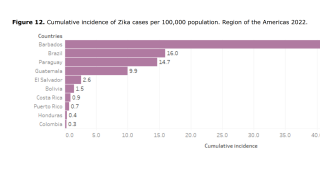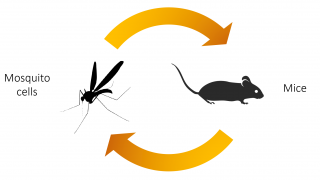24,124 Zika Cases Confirmed in the Americas

Since its first detection in Brazil in 2015, the Zika virus has become endemic in several countries. Furthermore, the risk of infants being impacted by microcephaly remains a primary concern of pregnant women contemplating international travel.
While the United States has avoided these health risks, other countries continue reporting Zika infections.
During 2023, several countries in the Region of the Americas registered increases in Zika cases compared to 2022.
In 2022, a total of 406,249 Zika cases, including two deaths, were reported in 15 countries and territories of the Region of the Americas, says the Pan American Health Organization (PAHO).
Its database indicated in early July 2023, there have been 8758 Zika cases reported this year. Brazil has reported the vast majority, followed by Belize and Bolivia.
The U.S. CDC says Zika virus infections during pregnancy can cause severe fetal brain defects such as microcephaly.
Microcephaly is a birth defect in which a baby's head is smaller than expected. Babies with microcephaly often have smaller brains that might not have developed properly.
Additionally, Congenital Zika syndrome is a unique pattern of birth defects and disabilities found among fetuses and babies infected with Zika during pregnancy.
The CDC says the only way to prevent Zika infection during pregnancy completely is to not travel to areas with a risk of Zika. Popular vacation destinations such as Costa Rica and Puerto Rico are included in these disease hot-spot warnings in 2023.
The CDC's Travel Health Notices and the U.K.'s NHS may include country-based Zika warnings.
As of July 12, 2023, there is no vaccine to prevent or medicine to treat Zika.
However, several Zika vaccine candidates are conducting clinical research.
Our Trust Standards: Medical Advisory Committee
























